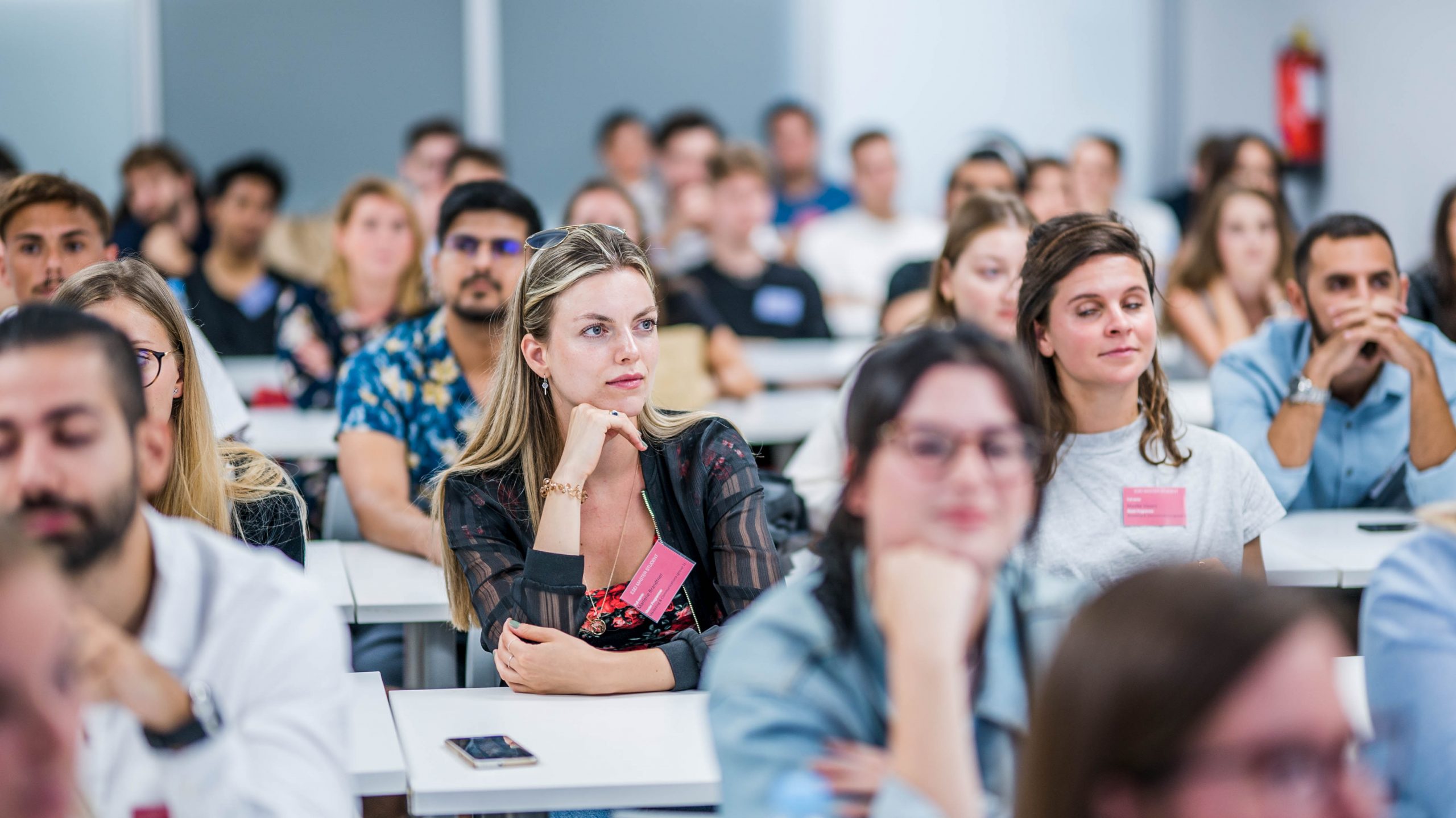
Educational Excellence in Barcelona | Project-Based Learning
- Categories Academics
Discover ESEI’s Project-Based Learning Environment
“In theory, there is no difference between theory and practice. But, in practice, there is.”
– Manfred Eigen
Here at ESEI, we take into great account the quality of the learning experience we offer to our students, and most importantly we strongly believe in the power of working with others to solve real-world challenges.
That’s why we prioritize a methodological approach called Project-Based Learning (PBL), which combines theory and practice.
This way, our graduates can end up gaining all the professional tools they need to enter their chosen working field as smoothly as possible.
In fact, by engaging in projects and activities that require creativity and a strong component of teamwork, our students have a preferential road in order to get used to real-life dynamics in the workplace.
At the same time, our team of teachers is constantly encouraged and motivated to plan activities revolving outside of the classroom and have their students work together profitably.
In this article, we will explore the main issues with theoretical approaches, highlighting the importance of combining practice with theory.
Theory-based approach vs Project-based learning approach
When it comes to learning, at one time or another most students have experienced first-hand the issues that come along with the application of a mostly theory-based approach, learned in class.
Basically, what happens is that on one side of the classroom we’ve got a professor lecturing, while the students are left alone trying to figure out the relevance of such lecture for their future careers.
That is to say, when it comes to higher education, the consequences of this approach are that the students end up being disengaged in their own field of interest, losing part of the personal and professional involvement that brought them there in the first place.
The working world, in fact, requires skills that can’t be developed from day to night, and our educational system definitely needs to provide such skills in order to prepare the business leaders of tomorrow.
Don’t get us wrong: theoretical education is a precious and fundamental tool in the whole process of learning since its core purpose is teaching through the experience of those who came before us, therefore giving students a deeper understanding of concepts is essential.
As mentioned before, the problem here does not lie in the theory itself, but in the lack of practical knowledge, so both of these methods need to be combined in a useful and tangible way.
In conclusion, achieving theoretical knowledge has little to no value in the work environment, unless you can apply practical measures.
The importance of active learning in the classroom
Learning through practice is the most important process for developing occupational competence, and this can be done only through active learning, a tool that, as research shows, is quite useful for the purpose of integrating practice and theory in the classroom.
With the term active learning, we actually mean the possibility for our students to be really present in the classroom, knowing exactly what they are doing and being actually conscious of the reasons behind their decisions.
The characteristics of active learning include more involvement of the students rather than them being mere listeners, less emphasis on transmitting information, and more on the development of the student’s skills.
Furthermore, students are involved in higher-order thinking (analysis, synthesis, evaluation) and are engaged in more useful and practical activities, such as writing, reading, and discussing. They apply the concepts acquired by developing projects for each module. With this hands-on approach, students get to work on a relevant subject that follows current market trends.
Lastly, through this approach, students are made able to explore their personal attitudes and values, promoting their interest and, therefore, their participation in the classroom.
This, by the way, is only possible by creating a safe environment for the students to feel free to take risks.
This is the responsibility of the teachers, who naturally play a crucial role in their student’s learning process.
The faculty facilitates our student’s work so that they can make the most of our programmes while being given the autonomy, flexibility, and responsibility needed for the development of their projects.
This can be done, from the professors’ side, by deciding the format of the project, creating the briefs, overseeing the team’s progress, and making regular check-in points.
Here at ESEI International Business School, we strive every day to offer our students the best possible solutions and environment in order for them to grow and become great professionals in their chosen fields.
And we do so both by working on improving our academic offering and by generating a genuine and friendly atmosphere.
If our values fall in line with yours and you are seeking a school that will value every aspect of your education, checking out our programmes is definitely a good starting point to start improving your future career.

Previous post



